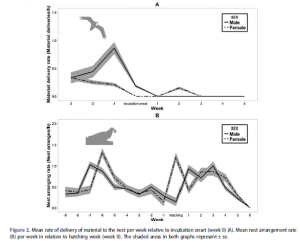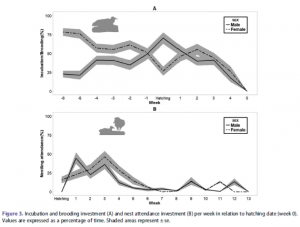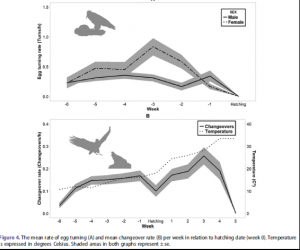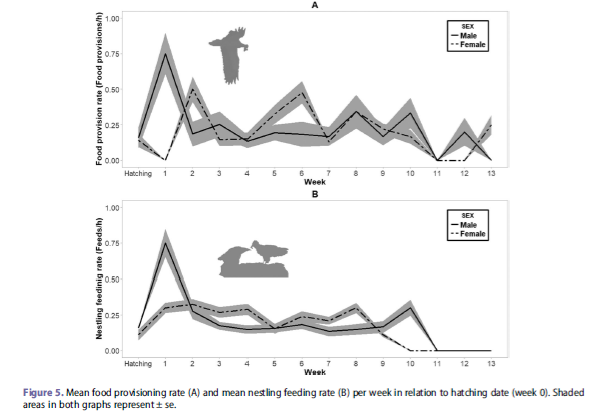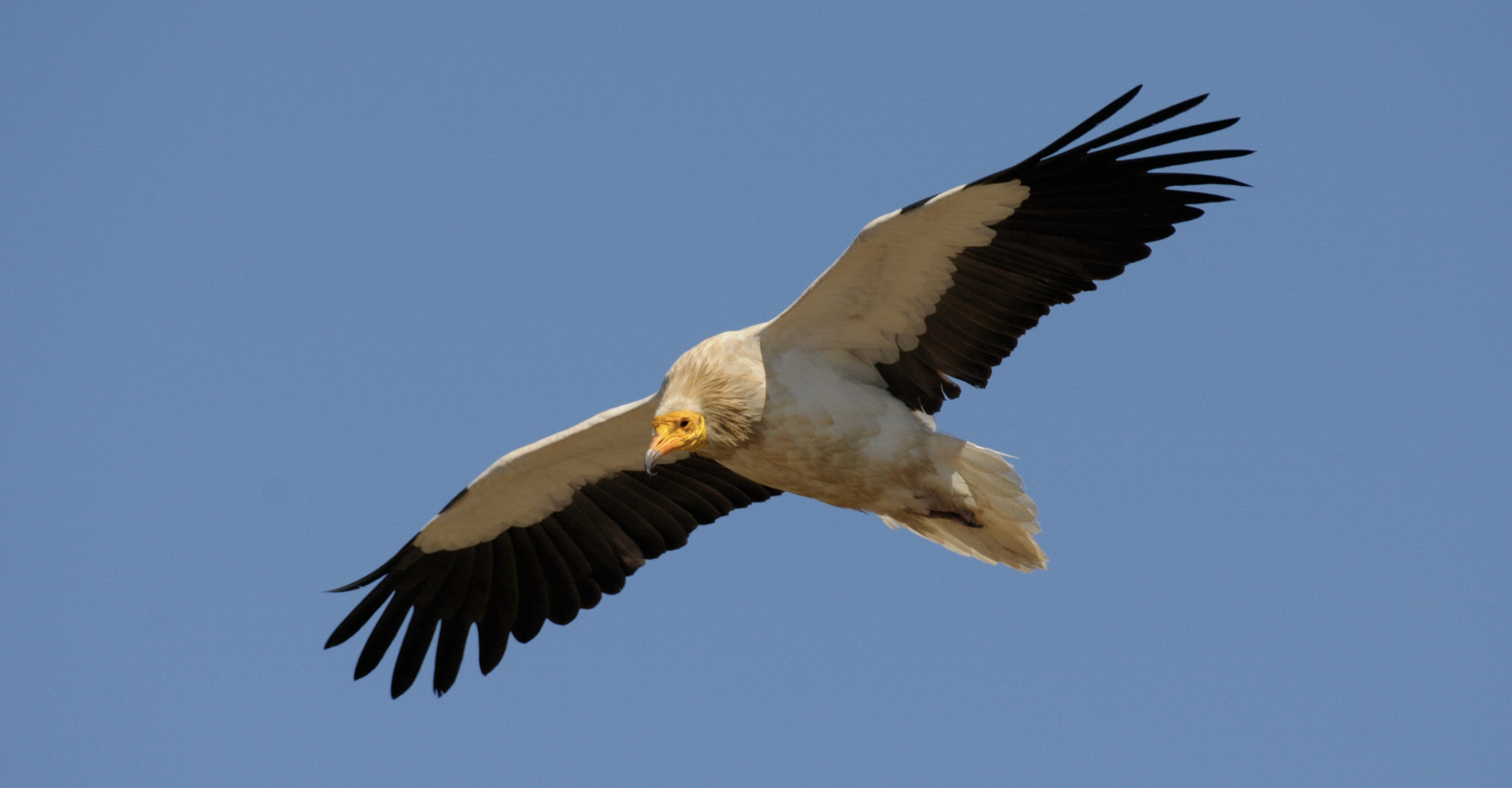
As adult Egyptian Vultures are currently returning to their nest sites in Europe following their spring migration from the Sahel region of Africa, we thought it would be the perfect opportunity to delve into their breeding behaviour. A recently published research has revealed some interesting parenting behaviours of Egyptian Vultures in the Biscay region of northern Spain. In this research review, we summarize the article ‘Parental investment asymmetries of a globally endangered scavenger: unravelling the role of gender, weather conditions and stage of the nesting cycle’ written by Jon Morant Etxebarria, Pascual López- López and Iñigo Zuberogoitia Arroyo, and published in the journal Bird Study.
Overview
Compared to the other European vulture species, our knowledge of the breeding biology of Egyptian Vultures is relatively limited. So the researchers set out to quantify parental care for the first time, assessing any differences between males and females and identifying any effects of weather conditions and stage of the nesting cycle.
Method
To assess and quantify the parental care of the species, the lead author monitored five nests very intensively once per week, with another ten nests visited less frequently. Males and females were differentiated by a combination of different facial markings and colouration (males tend to be more orange, females more yellow) and feather moult patterns, with sexes eventually being confirmed during observed copulations. Data on nine different behavioural variables related to nesting, breeding and chick raising activities were collected throughout the breeding period, enabling a comparison of the frequency and proportion of time that each sex invested in parenting behaviour.
Results
Although the authors were not expecting any major differences in parental investment between the sexes, and the results largely confirmed this, they revealed that the observed male and female Egyptian Vultures fulfilled some different parental roles depending on the stage of the nesting period. For example, while males spent more time delivering nesting material than females (0.67 deliveries/hour for males compared to 0.14 deliveries/hour for females), females invested more time in incubation and chick brooding (61.45% for females compared to 31.54% for males). Conversely, both sexes invested equally in nestling attendance (~21% each) and food provisioning (0.25-0.28 items delivered per hour). During the nestling stage, the changeover rate (when females and males swap brooding the egg or chick) increased with temperature, and continuous brooding became unnecessary three weeks after hatching as the chicks’ thermoregulatory capacity increased.
Overall the results suggested that for Egyptian Vultures one sex is not entirely responsible for a specific task during the breeding season and that significant parental investment from both members of the pair is required to successfully raise a chick to fledging.
This article demonstrates how intensive field monitoring can reveal interesting aspects of vulture behaviour and increase our knowledge about their general ecology which can eventually be used to inform conservation strategies and actions.
As adult Egyptian Vultures across Europe arrive back from Africa to embark on the 2020 breeding season, we hope that their parental investment activities result in a productive year!
Sign up to our newsletter to never miss any vulture news!
Source
Jon Morant Etxebarria, Pascual López-López & Iñigo Zuberogoitia Arroyo (2019) Parental investment asymmetries of a globally endangered scavenger: unravelling the role of gender, weather conditions and stage of the nesting cycle, Bird Study, 66:3, 329-341, DOI: https://www.tandfonline.com/doi/abs/10.1080/00063657.2019.1688251
